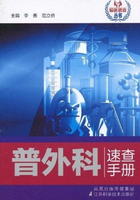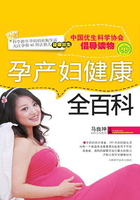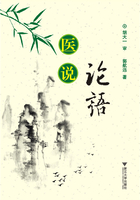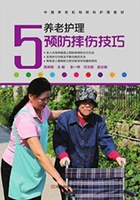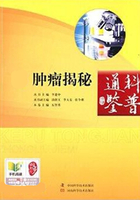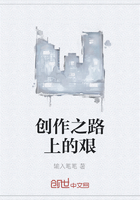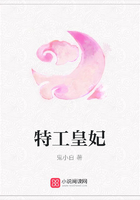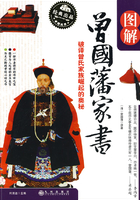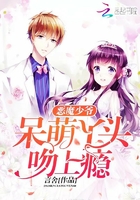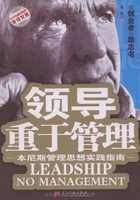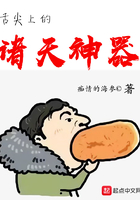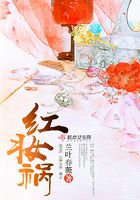1. In whatever disease sleep is laborious, it is a deadly symptom;
but if sleep does good, it is not deadly.
1.凡让人难以入眠之疾病,实为一严重症状;但如睡眠不错,则病症无甚要紧。
2. When sleep puts an end to delirium, it is a good symptom.
2.若睡眠不再让患者精神狂乱,则为一好兆头。
3. Both sleep and insomnolency, when immoderate, are bad.
3.不恰当的睡眠与失眠均有害健康。
4. Neither repletion, nor fasting, nor anything else, is good when more than natural.
4.凡超出自然范围,无论过饱、禁食或任何别的情况,均对人体不利。
5. Spontaneous lassitude indicates disease.
5.自发的疲乏预示身患疾病。
6. Persons who have a painful affection in any part of the body, and are in a great measure sensible of the pain, are disordered in intellect.
6.凡身体任何部位有疼痛之感,并且此种感觉非常明显者,其心智亦会随之失调。
7. Those bodies which have been slowly emaciated should be slowly recruited; and those which have been quickly emaciated should be quickly recruited.
7.缓慢衰弱之躯应缓慢恢复;迅速衰弱之躯应迅速恢复。
8. When a person after a disease takes food, but does not improve in strength, it indicates that the body uses more food than is proper;
but if this happen when he does not take food, it is to be understood evacuation is required.
8.若病人于病后进食而体力不见增长,则表明其身体消耗过多食物;但若此时他并不进食,则可视为需让其排泄。
9. When one wishes to purge, he should put the body into a fluent state.
9.当人欲排泄时,应让身体保持通畅。
10. Bodies not properly cleansed, the more you nourish the more you injure.
10.身体需保持洁净,否则愈给予滋养愈造成伤害。
11. It is easier to fill up with drink than with food.
11.饮酒比进食容易。
12. What remains in diseases after the crisis is apt to produce relapses.
12.疾病在危险期后仍易于复发。
13. Persons in whom a crisis takes place pass the night preceding the paroxysm uncomfortably, but the succeeding night generally more comfortably.
13.凡遭遇危险的病人,在疾病发作的前一夜多不安宁,而于疾病发作的后一夜多较为平静。
14. In fluxes of the bowels, a change of the dejections does good, unless the change be of a bad character.
14.大便若过于稀薄,则宜加以改变,除非变化的性质不佳。
15. When the throat is diseased, or tubercles (phymata) form on the body, attention must paid to the secretions; for if they be bilious, the disease affects the general system; but if they resemble those of a healthy person, it is safe to give nourishing food.
15.当咽喉患病,或身体上生出小瘤(皮肤肿块)时,则必须注意分泌液体;因若它们系胆汁质,则疾病会侵袭整个人体;但若与健康者的类似,则进营养食物并无危险。
16. When in a state of hunger, one ought not to undertake labor.
16.人饥饿时不应工作。
17. When more food than is proper has been taken, it occasions disease; this is shown by the treatment.
17.饮食过量则致病,正如治疗中所见。
18. From food which proves nourishing to the body either immediately or shortly, the dejections also are immediate.
18.凡对身体可立即提供营养之食物,排泄亦及时。
19. In acute diseases it is not quite safe to prognosticate either death or recovery.
19.病重之时预言病人死亡或康复均不可靠。
20. Those who have watery discharges from their bowels when young have dry when they are old; and those who have dry discharges when they are young will have watery when they are old.
20.年轻时大便稀薄者年老时则干燥;年轻时大便干燥者年老时则干燥。
21. Drinking strong wine cures hunger.
21.饮烈酒除饥饿。
22. Diseases which arise from repletion are cured by depletion;
and those that arise from depletion are cured by repletion; and in general, diseases are cured by their contraries.
22.血脂偏高引起的疾病用降低血脂之法治疗;血脂偏低引起的疾病用增高血脂之法治疗——疾病通常用其反面治之。
23. Acute disease come to a crisis in fourteen days.
23.重病两周内进入危象。
24. The fourth day is indicative of the seventh; the eighth is the commencement of the second week; and hence, the eleventh being the fourth of the second week, is also indicative; and again, the seventeenth is indicative, as being the fourth from the fourteenth, and the seventh from the eleventh.
24.第4天预示第7天之症状;第8天是第2周的开端;所以第11天为第2周的第4天,亦有所预示;又,第17天亦有所预示,因它为第14天以后的第4天,第17天以后的第7天。[ 注:本条反映疾病的“预后”现象。]
25. The summer quartans are, for the most part, of short duration;
but the autumnal are protracted, especially those occurring near the approach of winter.
25.夏季的“四日热”多不长久;但秋季的却久拖不止,尤其此病发生于临近冬季之时。
26. It is better that a fever succeed to a convulsion, than a convulsion to a fever.
26.宁愿惊厥后发烧,而不愿发烧后惊厥。
27. We should not trust ameliorations in diseases when they are not regular, nor be much afraid of bad symptoms which occur in an irregular form; for such are commonly inconstant, and do not usually continue, nor have any duration.
27.当疾病处于无规律状态时不应指望其改善;此时对不良症状亦勿过于担忧,因它们通常变化无常,不会持久。
28. In fevers which are not altogether slight, it is a bad symptom for the body to remain without any diminution of bulk, or to be wasted beyond measure; for the one state indicates a protracted disease, and the other weakness of body.
28.当发烧严重时,若身体不见消瘦或消瘦过度,均为一不良症状;因一种症状预示疾病久拖不愈,另一种症状预示身体十分虚弱。
29. If it appear that evacuations are required, they should be made at the commencement of diseases; at the acme it is better to be quiet.
29.若看来需要排泄,则应在疾病开始之时;疾病处于高峰时最好保持平静。
30. Toward the commencement and end of diseases all the symptoms are weaker, and toward the acme they are stronger.
30.疾病在初始期和结束期所有症状均不明显,唯在高峰期突出。
31. When a person who is recovering from a disease has a good appetite, but his body does not improve in condition, it is a bad symptom.
31.恢复健康的病人若食欲不错,但身体却不见改善,此为一不良症状。
32. For the most part, all persons in ill health, who have a good appetite at the commencement, but do not improve, have a bad appetite again toward the end; whereas, those who have a very bad appetite at the commencement, and afterward acquire a good appetite, get better off.
32.所有病人若最初食欲良好但身体却不见好转,最后多食欲不佳;而最初食欲不佳后来却改善者,多得以康复。
33. In every disease it is a good sign when the patient's intellect is sound, and he is disposed to take whatever food is offered to him; but the contrary is bad.
33.无论何种疾病,凡病人心智正常即为一好兆头,对于食物他会毫不挑剔;反之则为一不良预兆。
34. In diseases, there is less danger when the disease is one to which the patient's constitution, habit, age, and the season are allied, than when it is one to which they are not allied.
34.疾病与病人体质、习惯、年龄和季节相关时,比与其不相关时较少危险。
35. In all diseases it is better that the umbilical and hypogastric regions preserve their fullness; and it is a bad sign when they are very slender and emaciated; in the latter case it is dangerous to administer purgatives.
35.无论何种疾病,均以肚脐和下腹部保持丰满为宜;若十分瘦弱则为一不良征兆,此时施泻药则危险。
36. Persons in good health quickly lose their strength by taking purgative medicines, or using bad food.
36.健康者服泻药或饮食不当会迅速丧失体力。
37. Purgative medicines agree ill with persons in good health.
37.泻药对健康者不宜。
38. An article of food or drink which is slightly worse, but more palatable, is to be preferred to such as are better but less palatable.
38.人们宁愿要更味美可口但质量较差的食物,而不愿要质量较好但味道更差的食物。
39. Old have fewer complaints than young; but those chronic diseases which do befall them generally never leave them.
39.老人的疾病不如年轻人的多[ 注:此句似乎与事实不符,但“complaints”又不能作常见的“抱怨”解。],可他们一旦患上慢性病则常难以消除。
40. Catarrhs and coryza in very old people are not concocted.
40.卡他与卡他性鼻炎对于耄耋老人而言不可混为一谈。
41. Persons who have had frequent and severe attacks of swooning, without any manifest cause, die suddenly.
41.经常出现严重昏晕而无明显原因者,会猝然死亡。
42. It is impossible to remove a strong attack of apoplexy, and not easy to remove a weak attack.
42.消除严重中风不可能,消除轻微中风亦不容易。
43. Of persons who have been suspended by the neck, and are in a state of insensibility, but not quite dead, those do not recover who have foam at the mouth.
43.失去知觉但尚未死亡的上吊者,若口吐泡沫则难以复活。
44. Persons who are naturally very fat are apt to die earlier than those who are slender.
44.天生肥胖者比身材苗条者早死。
45. Epilepsy in young persons is most frequently removed by changes of air, of country, and of modes of life.
45.年轻人患癫痫症,常因空气、地域和生活方式的变化而治愈。
46. Of two pains occurring together, not in the same part of the body, the stronger weakens the other.
46.若两种疼痛同时发生但不在同一部位,则轻者被重者削弱。
47. Pains and fevers occur rather at the formation of pus than when it is already formed.
47.疼痛与发烧出现于脓形成之时而非之后。
48. In every movement of the body, whenever one begins to endure pain, it will be relieved by rest.
48.身体各部运动时一旦疼痛,休息就可使其缓解。
49. Those who are accustomed to endure habitual labors, although they be weak or old, bear them better than strong and young persons who have not been so accustomed.
49.凡习惯于劳动的人,虽年老体弱,亦比身强力壮但不习惯劳动的年轻人更能担负劳动。
50. Those things which one has been accustomed to for a long time, although worse than things which one is not accustomed to, usually give less disturbance; but a change must sometimes be made to things one is not accustomed to.
50.人们久已习惯的事物,虽不如其并不习惯的事物更佳,但通常麻烦较少;不过对于不习惯的事物,有时亦必须作些改变。
51. To evacuate, fill up, heat, cool, or otherwise, move the body in any way much and suddenly, is dangerous; and whatever is excessive is inimical to nature; but whatever is done by little and little is safe, more especially when a transition is made from one thing to another.
51.人在排泄、进食、升温、降温或做别的什么时,身体运动过猛则危险;凡过分之事总有害生命;而行事缓和则安全,尤其当人从一事过渡到另一事时。
52. When doing everything according to indications, although things may not turn out agreeably to indication, we should not change to another while the original appearances remain.
52.当凡事依照治疗法去做时,即使结果一时与治疗法不符,但在最初症状仍然存在时不应急于改变。
53. Those persons who have watery discharges from the bowels when they are young, come off better than those who have dry; but in old age they come off worse, for the bowels in aged persons are usually dried up.
53.年轻人大便稀薄比大便干燥更好;但对于老年人则更糟,因其肠内通常较为干燥。
54. Largeness of person in youth is noble and not unbecoming; but in old age it is inconvenient, and worse than a smaller structure.
54.年轻人身高体大的确不错,可谓恰当;但对于老年人却不适合——较小的身材对他们更为有益。
SECTION III.

